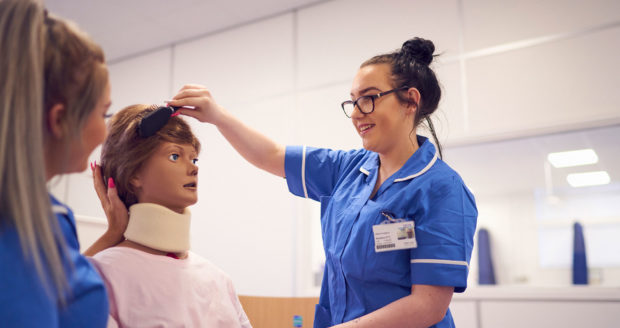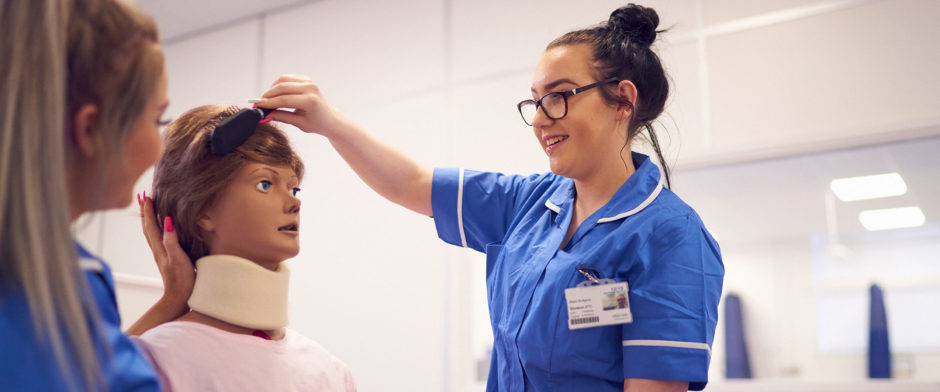Make a real difference in the health and social care sector. Develop your knowledge and skills in this area with the help of our state-of-the-art facilities to ensure that you are career-ready.

Working in health and social care is one of the most important jobs in the world so you need to have a real passion for helping people. You should also have great communication skills so you can build relationships with people and earn their trust.

You will study this subject as a vocational course or a T Level at our Bede Campus, or you can obtain an apprenticeship in the health and social care sector. You'll have access to our state-of-the-art Health Hub to develop real health professional skills, nursing and patient care mannequins, real care infant simulators, lung and digestive system demonstration models, industry standard medical equipment, and a mock ambulance interior.

We work with the following employers to help you get career ready and gain real work skills: Sunderland Royal Hospital, Care Academy, Ashford Orthodontics, Age UK South Tyneside, Washington Mind, St Benedict's Hospice, University of Sunderland, Sunderland Care and Support.

We work in close partnership with many of the North East's leading health and social care employers to ensure our students get the best opportunities to progress in their future career path. Some of our employer partners offer students who complete and achieve their programme of study a guaranteed interview with their organisation.
Employers include Sunderland Care and Support, South Tyneside and Sunderland NHS Foundation Trust, and Cumbria, Northumberland, Tyne and Wear NHS Foundation Trust.

(North East Market Share, 2023/24)